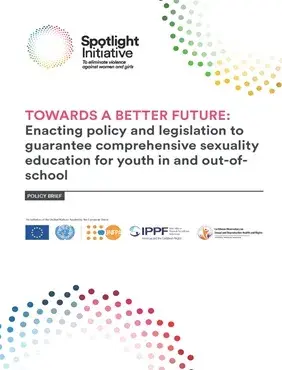Comprehensive sexuality education (CSE) is a curriculum-based process of teaching and learning about the cognitive, emotional, physical and social aspects of sexuality. It aims to equip children and young people with knowledge, skills, attitudes and values that will empower them to: realize their health, well-being and dignity; develop respectful social and sexual relationships; consider how their 2023 choices affect their own well-being and that of others; and understand and ensure the protection of their rights throughout their lives. It is scientifically accurate (content is based on facts and evidence related to sexual and reproductive health (SRH), sexuality and behaviors) and developmentally appropriate and responsive to the evolving capacities of the child and adolescent.
CSE plays a central role in the preparation of young people for a safe, productive, fulfilling life in a world where HIV and AIDS, sexually transmitted infections (STIs), unintended pregnancies, gender-
based violence (GBV) and gender inequality still pose serious risks to their well-being. At the 2012 Global Youth Forum of the International Conference on Population and Development (ICPD), young people
specifically called on governments to ‘create enabling environments and policies to ensure that they have access to CSE in formal and nonformal settings, through reducing barriers and allocating adequate budgets’. Despite clear evidence on the benefits of high-quality, curriculum-based CSE, few young people receive it.


